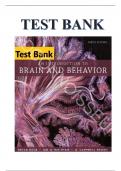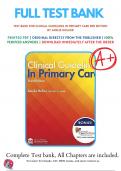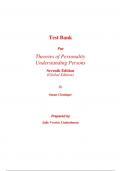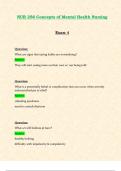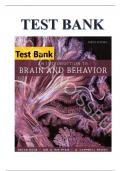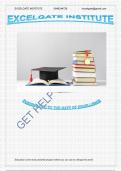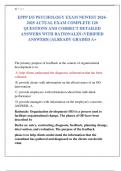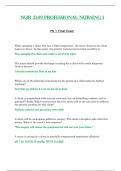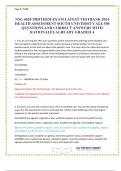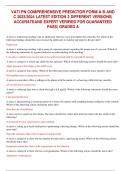Exam (elaborations)
Test Bank for An Introduction to Brain and Behavior 6th Edition by Bryan Kolb , Ian Q. Whishaw , G. Campbell Teskey 9781319107376 Chapter 1-16 Complete Guide.
Test Bank for An Introduction to Brain and Behavior 6th Edition by Bryan Kolb , Ian Q. Whishaw , G. Campbell Teskey 9781319107376 Chapter 1-16 Complete Guide. Table of Contents Cha pter 1 What Are the Origins of Brain and Behavior? Chapter 2 What Is the Nervous System’s Functional Anatomy? Chapte...
[Show more]
